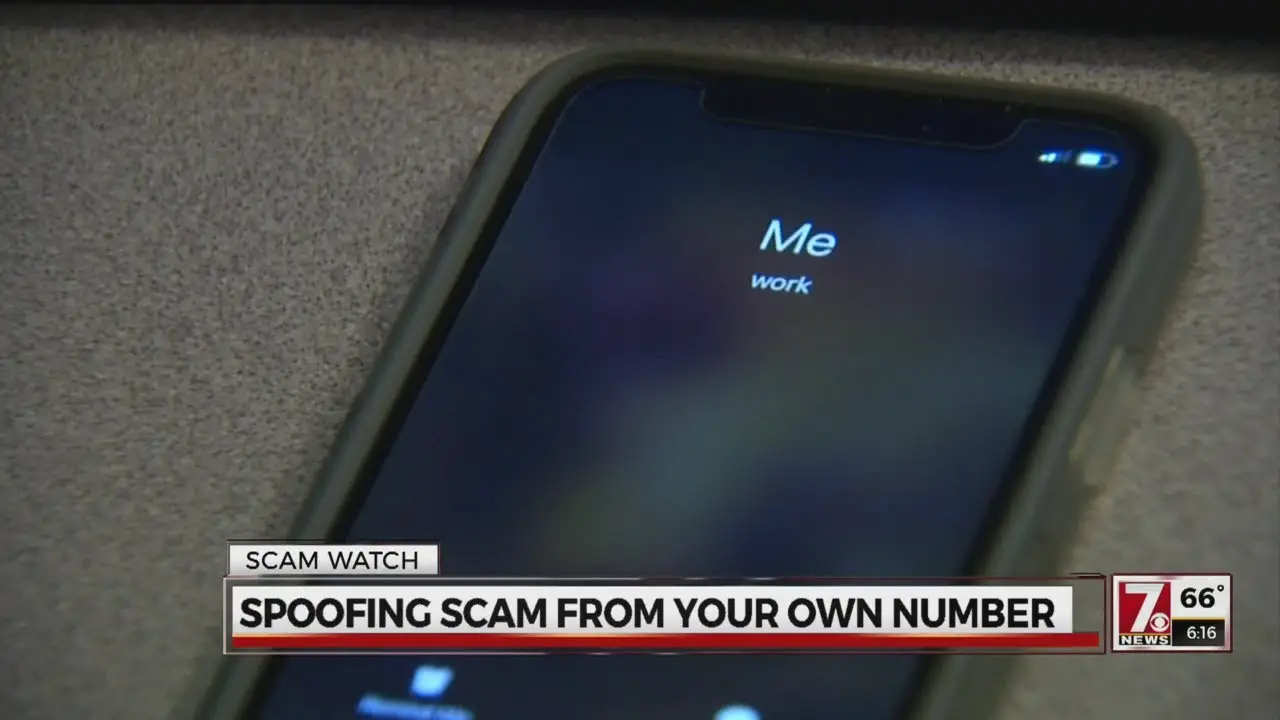If you call your own number, it is generally a good idea not to answer the call. There is typically no legitimate reason for a person to receive a call from their own number, and by answering, it notifies scammers that your number is active, often leading to more scam calls.
Additionally, if your phone is off, not in coverage, or you have set the call forwarding feature to voicemail, the call will be sent straight to voicemail. You can then hear your voicemail message and leave an answer for yourself.
Remember to be cautious when receiving calls from your own number and avoid answering them.
Understanding The Purpose Of Calls From Your Own Number
Calling your own number typically indicates a scam or spam call, and it is advisable not to answer. By answering such calls, you may unwittingly inform scammers that your number is active, leading to more scam calls. Additionally, if your phone is off or not in coverage, the call may be redirected to voicemail.
It may seem puzzling to receive a call from your own phone number. After all, why would you be calling yourself? In reality, these calls often come from scammers who are up to no good. By understanding the purpose behind these calls, you can protect yourself from falling prey to their schemes.
Scam Calls And The Risks Of Answering:
- Scammers often use technology to spoof your own phone number, making it appear as if the call is coming from yourself.
- Answering these calls can notify scammers that your number is active, leading to an increase in scam calls in the future.
- These scam calls may attempt to trick you into revealing personal information, such as your social security number or bank account details, which can be used for identity theft or fraud.
Notification Of Active Numbers And Increased Scam Calls:
- When you answer a call from your own number, scammers may see it as an opportunity to target you further.
- They may realize that your number is active and begin bombarding you with more scam calls to try and extract sensitive information from you.
- These scam calls can be not only annoying but also potentially harmful to your personal and financial well-being.
Remember, if you receive a call from your own phone number, it is best to ignore it. By doing so, you can avoid falling victim to scammers and protect your personal information from being compromised. Stay vigilant and always be cautious when answering unknown calls, even if they appear to be from your own number.
Potential Outcomes When Calling Your Own Number
When you call your own number, there can be a few potential outcomes. In some cases, the call may go straight to voicemail if your phone is off or not in coverage. Additionally, if the call appears to be from your own number, it’s generally best not to answer as it could be a scam call.
Have you ever wondered what would happen if you called your own phone number? Would you be able to talk to yourself or leave a voicemail? In this section, we will explore the potential outcomes when calling your own number.
Let’s dive in:
Call Going Straight To Voicemail:
- If your phone is turned off, not in coverage, or you have set up call forwarding to voicemail, the call will be directed straight to your voicemail.
- You will be able to hear your own voicemail message and even leave a message for yourself.
- This can be a helpful feature if you want to leave reminders or notes for later reference.
Listening To Voicemail And Leaving A Message:
- When your call connects to your own voicemail, you can listen to any existing messages you may have.
- You may have the option to skip or delete messages as needed.
- After listening to your voicemail, you can leave a message for yourself, just like you would for any other person.
- This can be a convenient way to leave yourself reminders or memos.
Calling your own number may not be something you think about every day, but in certain situations, it can be useful. Whether you want to listen to your voicemail or leave yourself a message, it’s interesting to explore all the possibilities of this unique function.
Remember, it’s important to exercise caution when it comes to unexpected phone calls, especially if they appear to be coming from your own number. Scammers often use this tactic to verify active phone numbers for future phishing attempts. If you receive such a call, it’s best to ignore it and avoid engaging with the scammer.
Now that you know the potential outcomes when calling your own number, it’s time to test it out and see what happens. Let us know your experience in the comments below!
Keeping And Transferring Phone Numbers
Calling your own number usually results in the call not connecting. This is because the mobile phone network recognizes that the call is coming from the same number and prevents it from going through to prevent wasting airtime. It is generally advised not to answer calls from your own number as it is often a scam tactic to verify that your number is active.
Permanently Owning A Phone Number
When it comes to phone numbers, you might be wondering if it’s possible to permanently own a number. Good news! You can indeed own a phone number permanently. Here’s how it works:
- Local Number Portability: Under the FCC’s “local number portability” (LNP) rules, you have the legal right to keep your phone number when you move or switch phone companies. This means that even if you decide to switch to a different service provider, you can still keep your old number. It gives you the flexibility to transfer your number to any phone service that will accept it.
- Transferring Phone Numbers: If you’re considering switching phone companies or moving to a different area, you can transfer your phone number to your new provider. This process is simple and ensures that you maintain your existing number without any interruption in service.
Now that you know you can permanently own a phone number, you can feel confident in keeping the number that you’ve grown accustomed to. Whether you’re relocating or looking for a better service provider, your phone number can stay with you throughout the process.
Local number portability makes it easy to own your number and have it transferred hassle-free.
Local Number Portability And Changing Phone Companies
If you’re thinking about changing phone companies, you might be wondering how the process works and if you can keep your current number. Here’s what you need to know:
- Local Number Portability (LNP): Local number portability is a regulation by the FCC that enables customers to retain their phone numbers when switching phone companies or moving to a new area. This means you can bring your current phone number with you to a new service provider. It allows for a seamless transition without having to inform everyone about a new number.
- Process of Transferring Numbers: To transfer your phone number to a new provider, you’ll need to follow a few simple steps. Your new provider will guide you through the process, but generally, it involves providing certain information such as your current phone number, account details, and sometimes proof of ownership. Once the transfer is complete, your old number will start working with the new service provider.
Local number portability gives you the freedom to switch phone companies without the hassle of changing your phone number. It ensures that you can keep your long-established number while enjoying the benefits of a new service provider. Don’t let the fear of losing your number hold you back from exploring better phone options.

Credit: lite987.com
Ways To Check Your Own Phone Number
When you call your own phone number, it is typically a scam. Avoid answering as it notifies scammers that your number is active, leading to more scam calls. If you call your own number, the call may go straight to voicemail or the network may recognize it and not allow it to connect.
Finding Your Phone Number On Android Devices:
- Go to Settings on your Android device.
- Look for the “About phone” or “About device” option.
- Tap on it to access additional settings.
- Find the “Status” or “Phone identity” section.
- Click on it to view your phone number.
Locating Your Phone Number On Apple Devices:
- Open the Settings app on your Apple device.
- Scroll down and tap on “Phone” or “Messages”.
- In the Phone or Messages section, you may find your phone number listed.
- If you don’t see it there, go back to the main Settings page and select “General”.
- Inside the General settings, look for “About” or “About Phone”.
- In the About section, you should be able to find your phone number.
Frequently Asked Questions For What Happens If You Call Your Own Number
What Happens When Your Own Number Calls You?
Answer: When your own number calls you, it is often a scam. Do not answer, as it can lead to more scam calls.
What Happens If I Call My Own Cell Phone?
Calling your own cell phone may lead to various outcomes. It could go straight to voicemail if your phone is off, out of coverage, or if call forwarding is set to voicemail. Answering such a call is not advisable as it may notify scammers that your number is active, potentially leading to more scam calls.
Additionally, owning a phone number is possible through local number portability rules, allowing you to keep your number when switching phone companies. To check your phone number, navigate to the settings menu on your device. However, calling your own mobile number from the same mobile will not connect as the network recognizes it’s your own number and prevents the call to avoid wasting airtime.
Can You Permanently Own A Phone Number?
Yes, you can permanently own a phone number and transfer it to any phone service that will accept it, according to the FCC’s “local number portability” (LNP) rules.
How Can I Check My Own Number?
To check your own number, go to your phone’s settings and look for “About phone/device” or “Phone identity. ” In Android, it’s usually found under Settings > About phone/device > Status/phone identity > Network. On Apple devices, it can be found under Settings > Phone > My Number.
What Happens If Someone Calls Their Own Phone Number?
Calling your own phone number usually indicates a scam call, so it’s best not to answer. By answering, you confirm to scammers that your number is active, leading to more scam calls.
Conclusion
Receiving a phone call from your own number may be a cause for concern. Answering such calls can alert scammers that your number is active, leading to an influx of scam calls. It is generally recommended to avoid answering calls that appear to be from your own number.
If you do call your own number, the call may go straight to voicemail if your phone is off or not in coverage. This allows you to hear your voicemail message and leave a response for yourself. Remember that you have the ability to transfer and keep your phone number when changing phone companies, thanks to the FCC’s “local number portability” rules.
Checking your own phone number can easily be done by going to settings on both Android and Apple devices. Lastly, calling yourself out of curiosity may prompt the system to request your password, so be cautious. Overall, it’s important to stay vigilant and protect yourself from potential scams associated with calls from your own number.

